Irregular verbs in English, past tense of Make: Make - Made - Made
“Make” is one of the most commonly used irregular verbs in English. But how is it used in the past tense and past participle? In this guide, PREP walks you through the meaning, the past tense of Make, common expressions, and a short practice exercise to help solidify your understanding of this essential verb.

I. What is Make?
Before diving into verb forms, it’s important to understand the basic meaning of “Make.”
Pronounced /meɪk/, this verb is used to describe the act of creating, producing, or causing something to happen. It functions exclusively as a verb in this context and appears frequently in both spoken and written English.
|
Meaning of Make |
Example |
|
Perform, produce, create |
Anna likes to make cakes for her friends. |
|
Cause, bring about |
Jack’s joke always makes me laugh. |
|
Prepare, get ready |
They make plans for the weekend. |
|
Initiate, carry out, execute |
Let’s make a start on our project. |
|
Can you make a decision by tomorrow? |
|
|
Earn, generate, obtain |
Kelvin made a lot of money last year. |
|
Form, develop, evolve |
Their friendship made him a better person. |
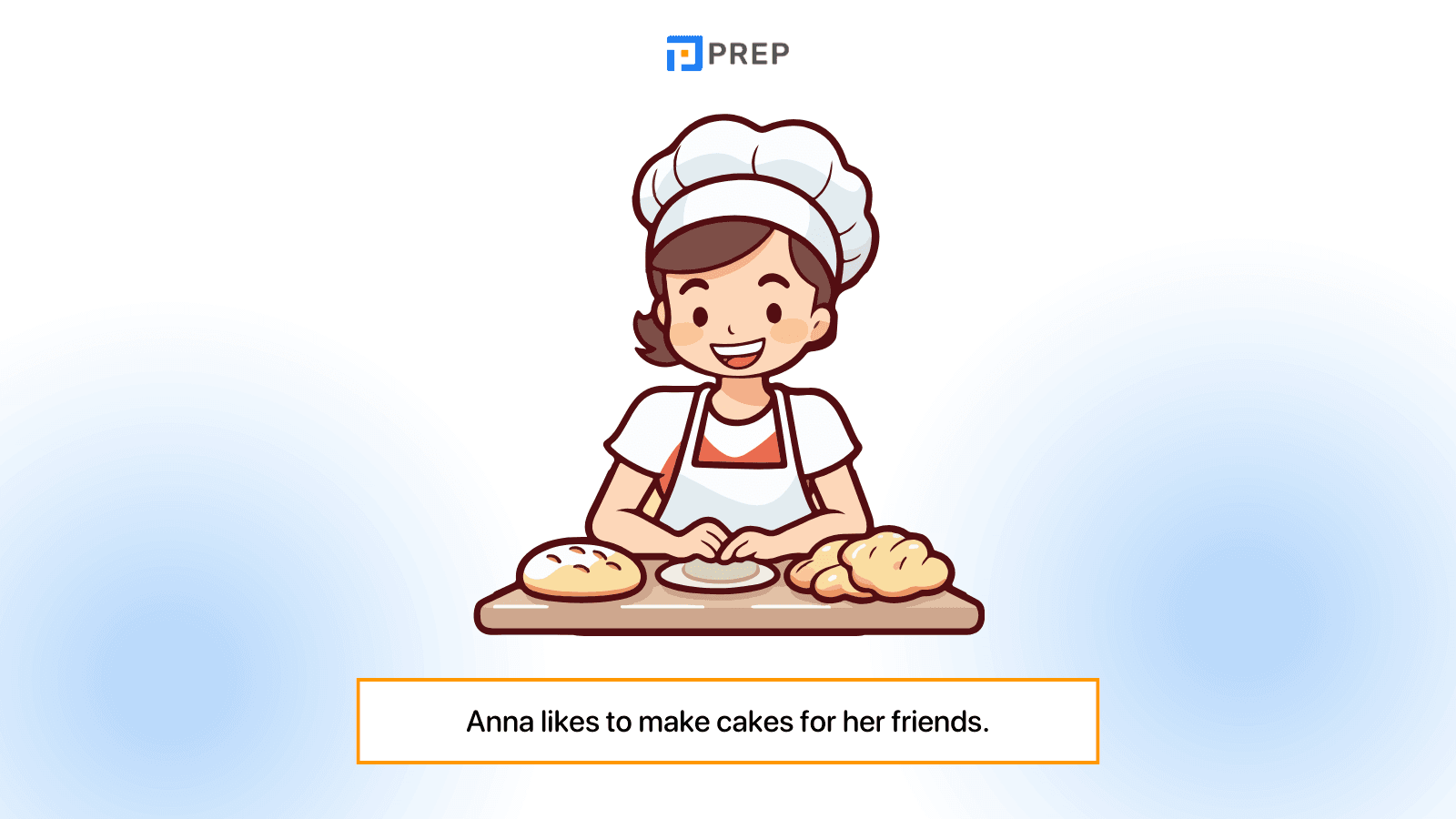
II. V0, V2, V3 of Make: The Past Tense of Make in English
What is the past tense of Make? V0, V2, and V3 are the base form, past simple of Make, and past participle of Make, respectively. Let’s take a closer look at V0, V2, and V3 of Make in the table below!
|
Verb |
Example |
|
|
V0 |
Make /meɪk/ |
I make a lot of mistakes in the Math lesson. |
|
V2 |
Made /meɪd/ |
I made a lot of mistakes in the previous Math lesson. |
|
V3 |
Made /meɪd/ |
I have made a lot of mistakes in the last Math lesson since the teacher came. |
Make past tense and past participle are: Make in past simple is Made and Make past participle form is Made. Therefore, Make past perfect is Had Made.
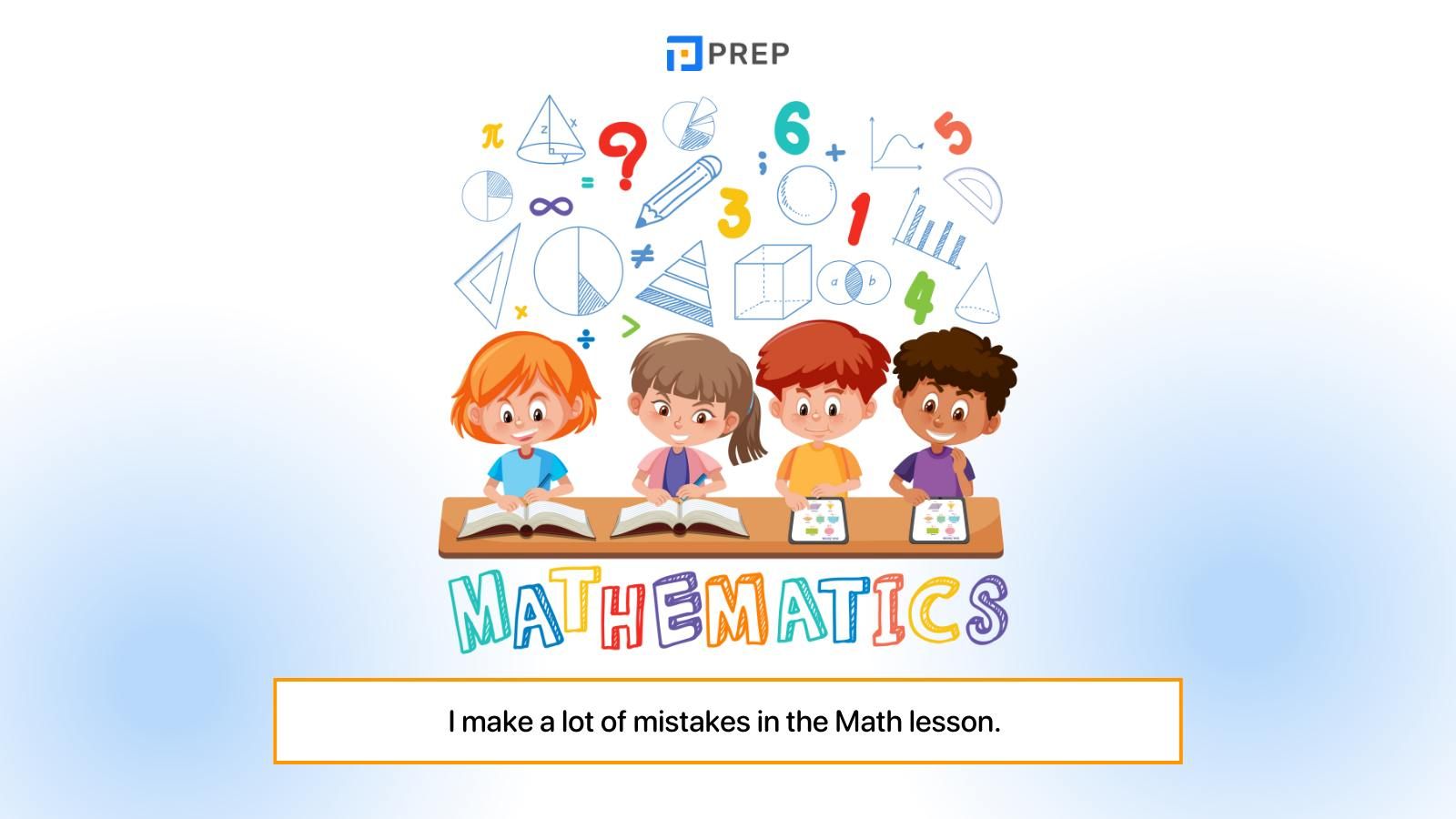
III. How to Conjugate the Verb Make
To use “Make” correctly in sentences, it's essential to understand how it behaves across all 12 English tenses and within special grammatical structures.
1. In the tenses
Discover how the verb “Make” changes in form across all key tenses, with examples to help you grasp its correct usage in context.
|
12 tenses in English |
I |
He/She/It |
We/You/They |
|
Present simple tense |
make |
makes |
make |
|
|||
|
Present progressive tense |
am making |
is making |
are making |
|
|||
|
Present perfect tense |
have made |
has made |
have made |
|
|||
|
Present perfect progressive tense |
have been making |
has been making |
have been making |
|
|||
|
Past simple tense |
made |
made |
made |
|
|||
|
Past progressive tense |
was making |
was making |
were making |
|
|||
|
Past perfect tense |
had made |
had made |
had made |
|
|||
|
Past perfect progressive tense |
had been making |
had been making |
had been making |
|
|||
|
Future simple tense |
will make |
will make |
will make |
|
|||
|
Future progressive tense |
will be making |
will be making |
will be making |
|
|||
|
Future perfect tense |
will have made |
will have made |
will have made |
|
|||
|
Future perfect progressive tense |
will have been making |
will have been making |
will have been making |
|
|||
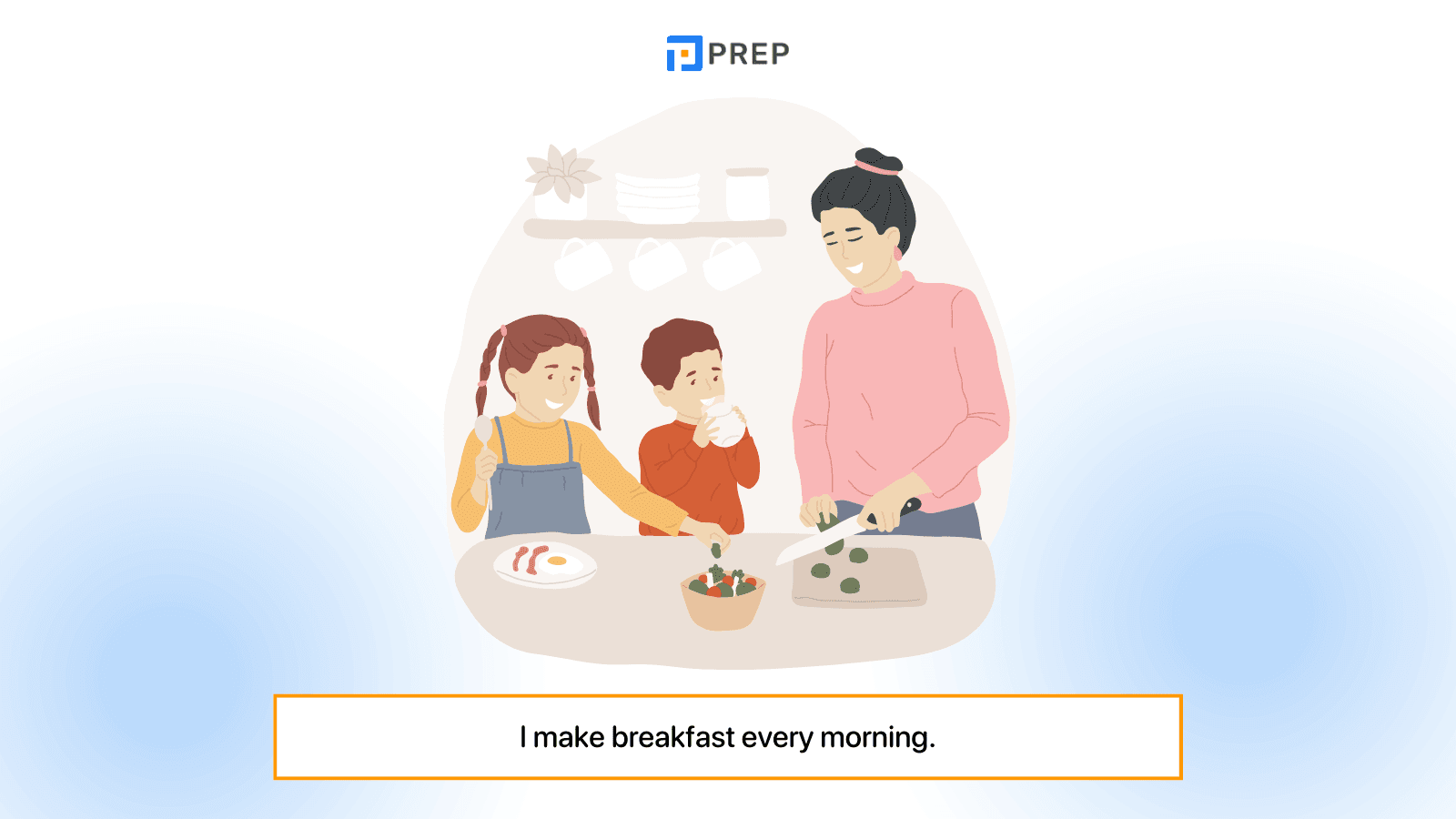
2. In special sentence structures
Explore how “Make” functions in complex sentence types, including passive voice, reported speech, and modal verb structures.
|
Special Structure |
I |
He/She/It |
We/You/They |
|
Conditional Sentences |
|||
|
Second conditional - Main Clause |
would make |
would make |
would make |
|
|||
|
Third conditional - Main Clause |
would have made |
would have made |
would have made |
|
|||
|
Subjunctive |
|||
|
Subjunctive expressing present situation |
make |
make |
make |
|
Subjunctive expressing present situation contrary to fact |
made |
made |
made |
|
Subjunctive expressing past situation contrary to fact |
had made |
had made |
had made |
|
Example |
|
||
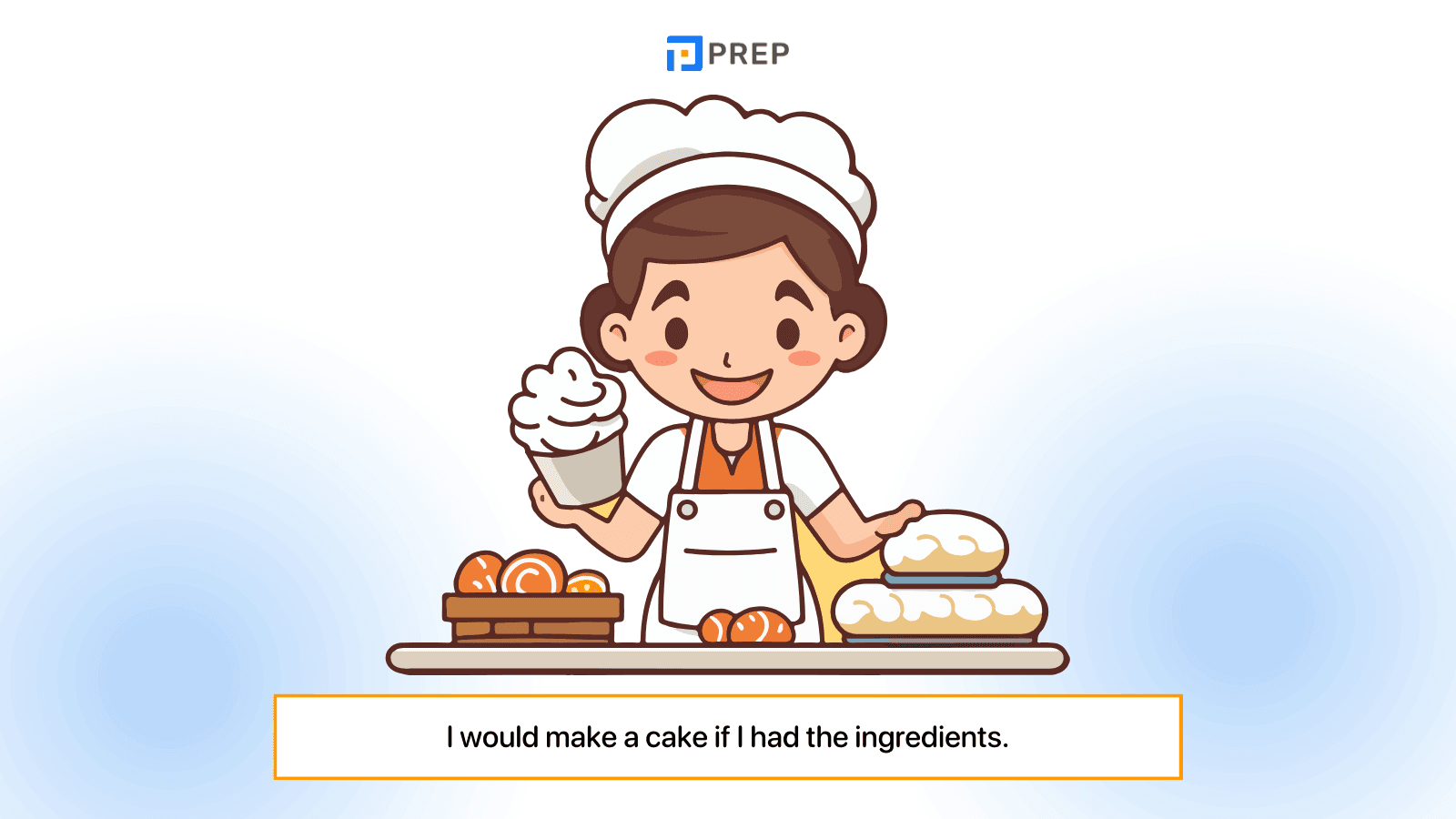
IV. Phrasal verbs with Make in English
Aside from its standard usage, the verb “Make” also appears in a wide range of phrasal verbs that carry unique meanings. In this section, we’ll introduce you to the most common phrasal verbs with “Make”, explain their meanings, and provide example sentences to show how they’re used in real-life communication.
|
Phrasal Verbs with Make |
Meaning |
Example |
|
Make up (with somebody) |
To reconcile or become friends again after a disagreement; to create a story or excuse |
After their argument, Tom and Jerry decided to make up. |
|
Make out |
To understand something, often despite difficulty or ambiguity |
Samantha could barely make out the words on the distant sign. |
|
Make off |
To run away or leave quickly, often after committing a crime |
The thief made off with a bag full of money. |
|
Make into |
To transform or change something into another form or entity |
She made the old barn into a cozy workshop. |
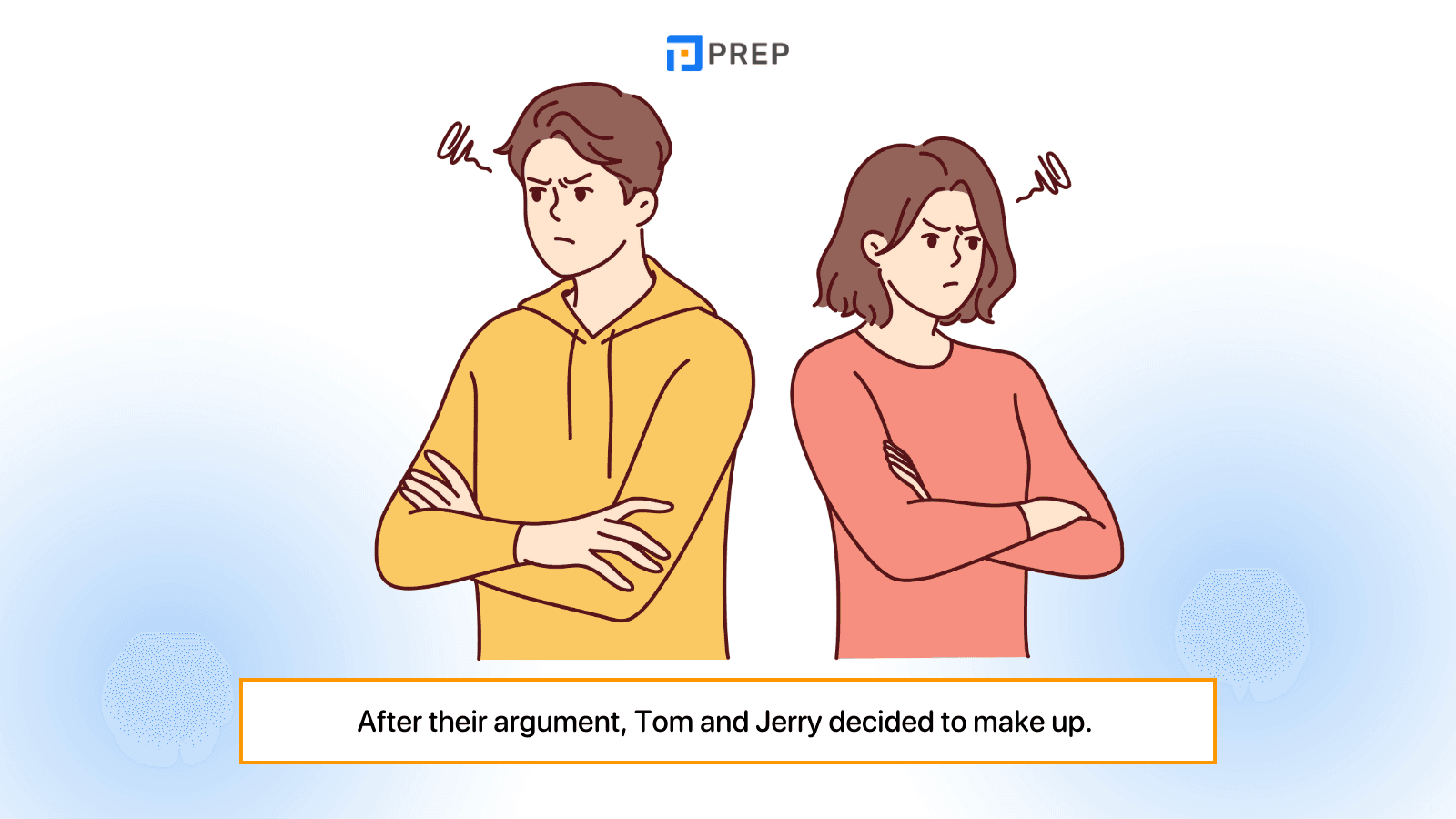
V. Idioms with Make in English
The verb “Make” features in many popular expressions that can’t be understood literally but are widely used by native speakers. Learning these idioms will not only expand your vocabulary but also improve your ability to express ideas more naturally.
|
Idioms with Make |
Meaning |
Example |
|
Make ends meet |
To have enough money to pay for one's basic needs and to live |
After losing his job, David struggled to make ends meet. |
|
Make a mountain out of a molehill |
To exaggerate a minor issue and turn it into a significant problem |
Jessica tends to make a mountain out of a molehill whenever she has a minor issue. |
|
Make a fuss |
To complain or make a commotion about something that is not important |
Tom made a fuss about the bad service at the restaurant. |
|
Make the cut |
To be selected or to meet the necessary requirements |
After weeks of training, Lisa was thrilled to learn she made the cut for the team. |
|
Make a deal |
To reach an agreement or an arrangement |
After some negotiation, Mark and the client finally made a deal. |
|
Make do |
To use what is available, even if it is not ideal, to solve a problem |
When their car broke down, they had to make do with public transport. |
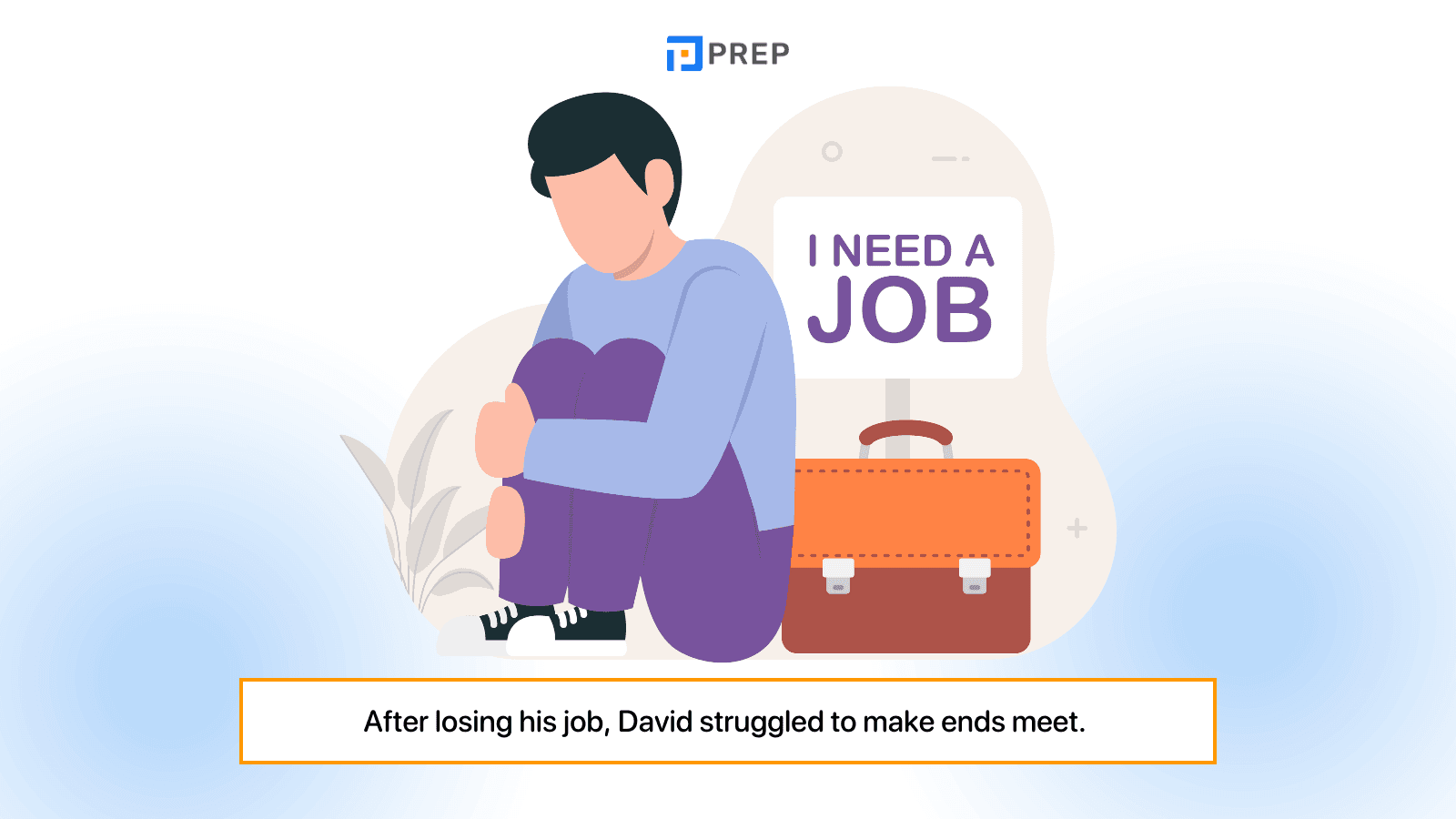
VI. Exercise on the past tense of Make with Answers
To reinforce your understanding, try completing this short exercise that focuses on the past and past participle forms of “Make.” Check your answers afterward to track your progress.
1. Exercise: Conjugate the verb "make" in the following sentences:
-
Yesterday, I ___ (make) a delicious cake for the party.
-
Right now, Jennie ___ (make) dinner for her family.
-
Jack usually ___ (make) coffee in the morning.
-
They ___ (make) a presentation last week.
-
By next year, we ___ (make) significant progress on the project.
-
If it rains tomorrow, I ___ (make) plans to stay inside.
-
I ___ (make) a mistake on my exam last time.
-
Anna ___ (make) a new friend during the trip.
-
We ___ (make) plans for the weekend yesterday.
-
Richard has ___ (make) several important decisions recently.
2. Answer key
|
|
In this lesson, you’ve explored how to use the past tense of Make in its various forms—Make – Made – Made—and learned how it fits into different tenses, structures, phrasal verbs, and idioms. For more tips and practice on English grammar and vocabulary, stay connected with PREP!

Hi I'm Chloe, and I am currently serving as an Product Content Administrator at Prep Education. With over five years of experience in independent online IELTS study and exam preparation, I am confident in my ability to support learners in achieving their highest possible scores.
Comment
Premium content
View allPersonalized roadmap
Most read












